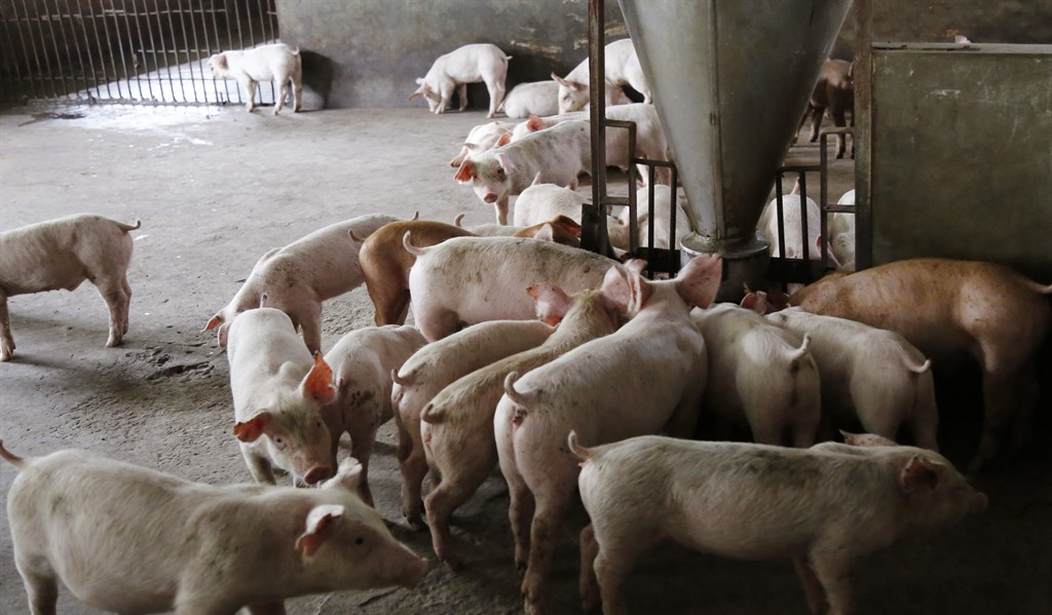Many farmers weren’t looking forward to 2024. On January 1, they faced billions of dollars in higher costs to produce bacon and sausage, courtesy of an overreaching California law. Congress has an opportunity to correct the situation for farmers and consumers who, as a result, are facing higher food prices. Policymakers should incorporate the Protecting Interstate Commerce for Livestock Producers Act into Farm Bill negotiations.
The problem started in 2018. California voters passed an animal rights ballot measure to ban pig farmers in the state from raising livestock using common, veterinarian-approved animal husbandry practices. But the measure goes even further. It prohibits the sale in California of pork produced in other states that don’t follow the new rules.
While California is a large consumer market, about 99 percent of pig farmers live in other states. That means the new rule is effectively a national mandate on farmers outside California’s borders. The associated consequences for consumers and farmers are just beginning.
A recent report from the Washington Policy Center calculated that the average pork farm will have to spend $3.5 million to make their barns California-compliant. Those costs will be passed on to consumers not just in California but nationwide. And, the law is expected to have an outsized impact on smaller, family-owned farms. Unlike their larger competitors, they lack the upfront resources to upend operations and comply with California’s whims—leading to further market consolidation of pork farming.
The Protecting Interstate Commerce for Livestock Producers Act provides a commonsense approach to correcting California’s intrusion on the rest of the country. The proposed legislation prohibits states from banning the sale of food products that were legally made in another state. In other words, it recognizes the autonomy of states to regulate farming within their own borders.
Recommended
It’s clearly a federal issue that warrants congressional action.
It would be impossible to produce food in this country if all 50 states had patchwork arbitrary laws beyond federal rules governing health and safety. Imagine a situation where Wisconsin and Vermont try propping up their state’s dairy farmers by attacking out-of-state cheese production. Trade restrictions hurt farmers and consumers—leading to fewer choices at the grocery store.
The only crowd benefiting from restricting meat sales is radical animal rights activists, whose ultimate goal is to stop the production of farm-raised meat entirely. Now, they are mounting a deceptive fight on Capitol Hill against any effort to curtail California’s overreach. They’re laundering opposition through front groups that claim to speak for farmers.
One of these groups calls itself Farm Action. Its co-founders previously worked for the Humane Society of the United States, the country’s largest animal rights organization, which promotes veganism and lobbies for laws that make it harder for consumers to buy meat and more expensive for farmers to produce it. Marty Irby, Farm Action Fund’s former contract lobbyist, is a former animal rights lobbyist, as well.
Barely half of the group’s staff are farmers, and tax records from Foundation Search indicate that almost 100 percent of the group’s money in 2021 came from just four sources: Three dark-money groups and an environmentalist foundation. A grassroots group of farmers this is not.
Voters in Los Angeles and San Francisco should not be able to dictate rules around farm animals in other states. Congress has an opportunity to correct the overreach. The Farm Bill presents a plausible legislative vehicle to make it happen.
Will Coggin is the managing director of the Center for Consumer Freedom.
Editor's note: This piece has been updated.

























Join the conversation as a VIP Member